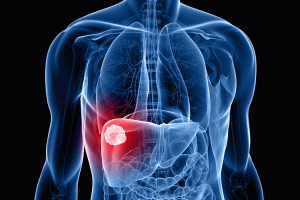
A global study reveals that cutting-edge cancer immunotherapies, while lifesaving, carry a hidden risk: they may trigger cholestasis, a serious liver condition where bile flow stalls.
Analysing 634 patient reports from global drug-safety databases (FAERS and VigiBase), scientists found immunotherapy patients had a significantly higher risk of cholestasis than chemotherapy recipients.
Those under 65 faced greater danger, and women developed symptoms weeks earlier than men (Median 1.17 vs.
1.90 months).
Anti-PD-1 drugs (e.g., pembrolizumab) and combination therapies posed the highest risk.
In mice, combined anti-CTLA-4/anti-PD-L1 drugs caused severe bile duct injury.
Molecular analysis linked the condition to disrupted bile acid metabolism and inflammation pathways.
“This isn’t about abandoning immunotherapies—they save lives,” stresses senior author Peng Luo, PhD, of Southern Medical University.
“But we must monitor liver function aggressively, especially in the first month for women and young adults. Catching cholestasis early prevents irreversible damage.”
Surprisingly, cholestasis often occurred without classic hepatitis symptoms, suggesting routine liver tests alone may miss it.
The team urges adding bile acid level checks to standard monitoring.
Source: FAR Publishing Limited
We are an independent charity and are not backed by a large company or society. We raise every penny ourselves to improve the standards of cancer care through education. You can help us continue our work to address inequalities in cancer care by making a donation.
Any donation, however small, contributes directly towards the costs of creating and sharing free oncology education.
Together we can get better outcomes for patients by tackling global inequalities in access to the results of cancer research.
Thank you for your support.